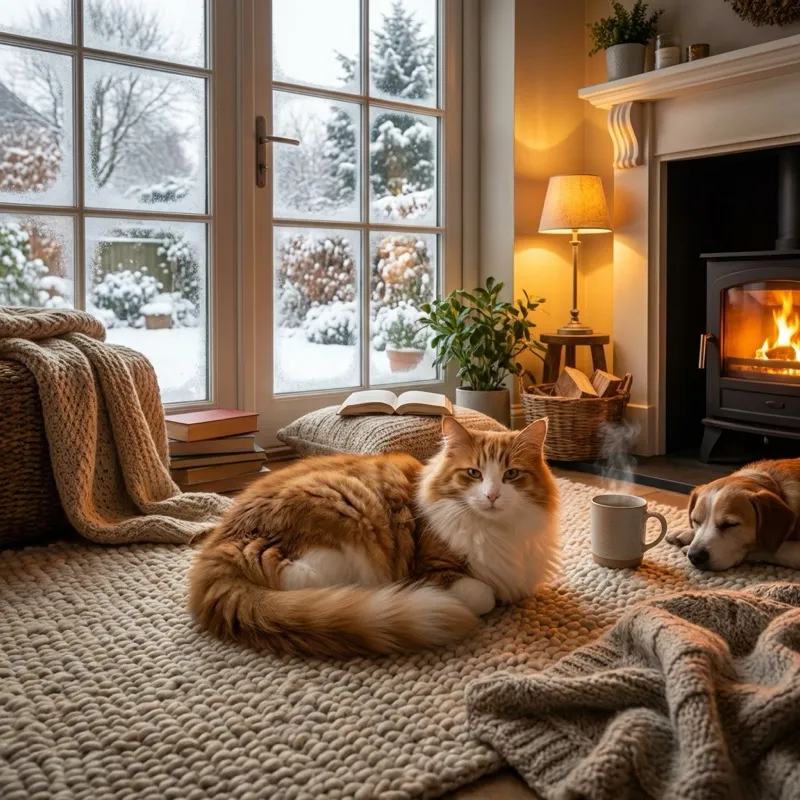Why Cat Litter Smells Worse in Winter (And 5 Solutions That Don't Require Opening Windows)
Closed windows trapping unbearable ammonia odors? You're not alone. Discover why winter makes cat litter smell worse and 5 proven solutions that work without freezing your home.

Winter's closed windows create the perfect storm for trapped cat litter odors
Quick Summary
- ❄️The Problem: Closed winter windows trap ammonia molecules that would normally escape, causing 3-5x odor concentration indoors.
- 🔬The Science: Modern energy-efficient homes exchange air only 0.35 times per hour (ACH)—causing ammonia to concentrate up to 500% higher than summer levels.
- ✅The Solution: Trap odors at the source with activated carbon, increase cleaning frequency, and optimize indoor air circulation.
The Winter Litter Box Problem Nobody Talks About
You've probably noticed it: the exact same litter box that was manageable in summer suddenly becomes overwhelming in winter. You walk into your home and hit a wall of ammonia smell. Your guests notice the second they walk through the door. Even your cat seems hesitant to use the box.
Why Winter Is Different: The Science Behind Trapped Odors

Closed windows and sealed homes trap odor molecules that would normally escape
5 Proven Solutions for Winter Cat Litter Odor
Trap Odors at the Source with Activated Carbon
The most effective winter solution is preventing odors from entering your air in the first place. Activated carbon works through adsorption—millions of microscopic pores trap ammonia molecules before they can escape the litter box.
Increase Cleaning Frequency by 25-50%
With reduced natural ventilation, waste accumulates faster in your indoor air. Adjust your schedule to scoop 2-3x daily.
Optimize Indoor Air Circulation
Close vents near litter box, use exhaust fans after scooping, and add air purifiers with carbon filters.
Switch to Low-Dust Litter
Winter's dry air exacerbates dust problems. Consider large-grain clumping clay, crystal/silica, or wood pellets.
Consider a Covered Litter Box with Filter
Covered boxes with activated carbon filters contain odors before they escape—especially important when windows are closed.
